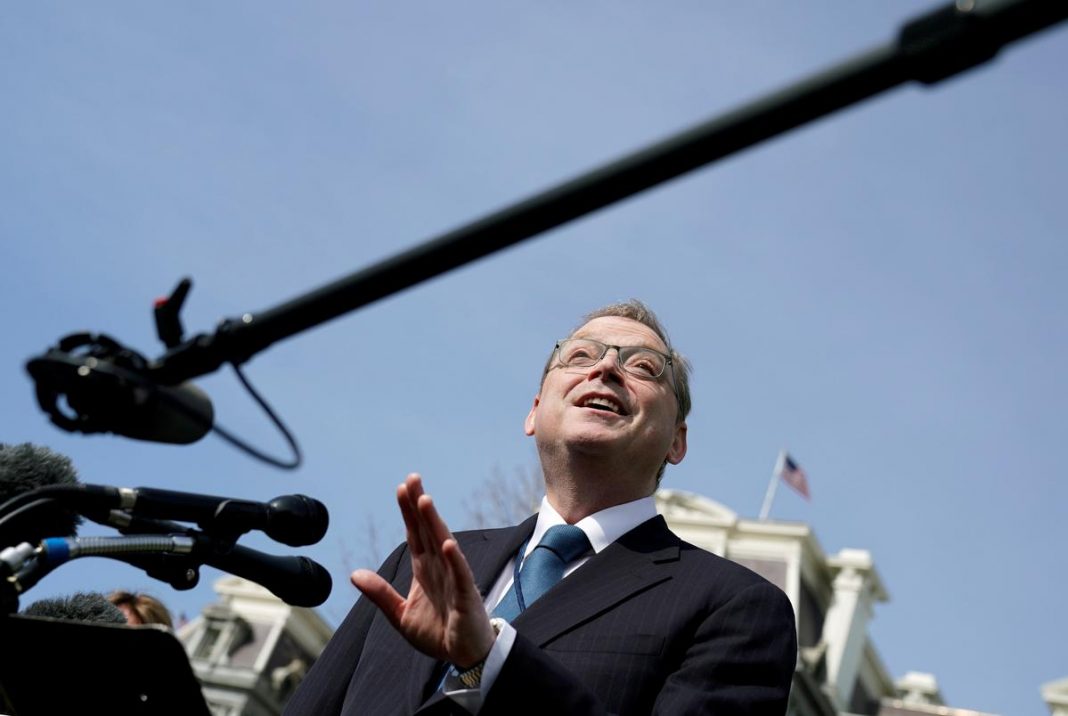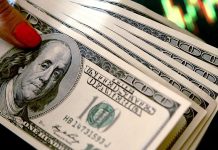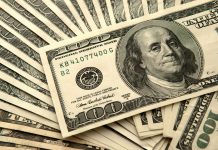“It’s a really grave situation,” President Donald Trump’s adviser, Kevin Hassett, told the ABC program “This Week.”
“This is the biggest negative shock that our economy, I think, has ever seen. We’re going to be looking at an unemployment rate that approaches rates that we saw during the Great Depression” of the 1930s, Hassett added.
Lockdowns across the United States to curtail the spread of the novel coronavirus have hammered the economy, shuttering businesses and sending unemployment skyrocketing.
A record 26.5 million Americans have filed for jobless benefits since mid-March, and retail sales, homebuilding and consumer confidence have all cratered.
The nonpartisan Congressional Budget Office predicts U.S. gross domestic product will contract at nearly a 40% annual rate in the second quarter, with unemployment cresting at 16% in the third quarter. But even next year, the CBO sees the jobless rate still averaging above 10 percent.
Before the pandemic struck, the U.S. jobless rate had been hovering at a 50-year low of 3.5%.
“I think the unemployment rate is going to jump to a level probably around 16 percent or even higher in the next jobs report,” due on May 8, providing April employment statistics, Hassett told reporters at the White House.
Hassett added that the second-quarter drop expected in the nation’s GDP would be a “big number.”
“I think the next couple of months are going to look terrible. You’re going to see numbers as bad as anything we’ve ever seen before,” Hassett said, referring to U.S. economic data.
“We’re going to need really big thoughtful policies to put together to make it so that people are optimistic again,” Hassett added.
Trump’s advisers want to hone a list of five or six ideas to present to Congress to help clear the economic carnage, Hassett said.
“I’m sure that over the next three or four weeks, everybody’s going to pull together and come up with a plan to give us the best chance possible for a V-shaped recovery,” Hassett told ABC. “I … don’t think you get it if we don’t have another round of really solid legislation.”
A “V-shaped recovery” is one in which an economy bounces back sharply after a precipitous decline.
TENSIONS ON CAPITOL HILL
The U.S. Congress has already approved $3 trillion in coronavirus relief in a show of bipartisan support for laid-off workers and an economy in free fall.
Lawmakers are now poised for a battle over federal assistance to state and local governments whose budgets have been shattered by a plunge in tax revenue even as they have had to take extraordinary measures during a pandemic that has caused a U.S. death toll approaching 55,000.
New York City needs $7.4 billion in federal aid to offset economic losses from the coronavirus, its mayor said on Sunday.
“If New York City is not (made) whole, it will drag down the entire region, and it will hold up the entire national economic restart,” Mayor Bill de Blasio, a Democrat, said on the Fox program “Sunday Morning Futures.”
Like de Blasio, many of the nation’s governors – Democrats and Republicans alike – have pressed the Trump administration and Congress to come forward with a sizable relief package.
“We will have state and local (aid), and we will have it in a very significant way,” House of Representatives Speaker Nancy Pelosi, the top Democrat in Congress, said on CNN’s “State of the Union.”
“The governors are impatient,” Pelosi added. “Their impatience will help us get an even bigger number.”
Trump has shown a willingness to support aid for cities and states, but some fellow Republicans – including Senate Majority Leader Mitch McConnell – have voiced wariness, citing a mounting federal debt load.
McConnell, in remarks that have drawn sharp rebukes from various governors as well as Democratic lawmakers, has suggested that states should declare bankruptcy instead.
Treasury Secretary Steven Mnuchin, asked whether Trump would support providing hundreds of billions of dollars to the states, said any further relief would have to receive support from both parties.
“This is a war. We’ll win this war. If we need to spend more money, we will, and we’ll only do it with bipartisan support,” Mnuchin told “Fox News Sunday.”






























